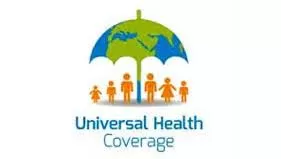December 20, 2024 – A newly identified strain of drug-resistant bacteria in Los Angeles has sparked concern among public health experts, as it presents a growing challenge in the battle against antibiotic-resistant infections. Over a three-month period earlier this year, three men sought medical help at clinics or emergency rooms in Los Angeles County, reporting severe diarrhea and a history of recent sexual contact with other men. Laboratory testing revealed that all three patients were infected with Shigella sonnei, a strain of bacteria known for causing shigellosis.
However, further analysis by researchers at UCLA uncovered a disturbing genetic mutation in the bacteria. This mutation made the strain resistant not only to five common classes of antibiotics but also to cephalosporins—an essential group of antibiotics often used as a last line of defense when other drugs fail to treat Shigella infections.
The researchers are calling the new strain “unique” to Los Angeles, with no recorded cases elsewhere. Dr. Shangxin Yang, a UCLA molecular biologist and co-author of the study, emphasized the seriousness of the discovery, warning that this newly resistant strain represents an alarming escalation in the global battle against antibiotic-resistant pathogens.
“It’s very alarming,” Dr. Yang said. “We are dealing with a very stealthy pathogen, and it’s really successful in spreading in a community.”
The discovery follows a worrying rise in cases of extensively drug-resistant (XDR) shigellosis, a type of Shigella infection that is impervious to most antibiotics. The U.S. Centers for Disease Control (CDC) began tracking this troubling trend two years ago, with cases sharply rising. In Los Angeles County alone, the Department of Public Health reported 45 cases of XDR shigellosis in 2023, a significant increase from just five in 2021. Although the number of cases decreased to 30 in 2024, experts remain concerned about the continued spread of these infections, primarily among men who have sex with men.
The new strain of Shigella sonnei discovered in Los Angeles is particularly worrisome because many cases are asymptomatic or present only mild symptoms, making it difficult for individuals to know they are infected and potentially spreading the bacteria to others. Dr. Yang pointed out that the bacteria’s resistance to multiple antibiotics complicates efforts to identify and treat the infection effectively.
“What we found is probably only a fraction of what’s really in the community,” Yang said. “The difficulty in identifying these resistant strains in the lab means that many cases may go undiagnosed.”
While most people infected with drug-resistant Shigella can recover without antibiotics, the situation is more dire for patients with weakened immune systems. One of the three patients identified in the recent report—a 62-year-old man with a history of HIV/AIDS and hepatitis C—required hospitalization and intensive care after developing septic shock. He was ultimately treated successfully with meropenem, a powerful antibiotic used only as a last resort.
Despite the increasing severity of Shigella infections, experts stress that the discovery of this new strain should not cause panic, but rather caution.
“This is not a cause for panic. It’s a cause for caution and alarm,” said Dr. Daniel Uslan, an infectious disease specialist at UCLA and co-author of the study.
The emergence of new drug-resistant bacteria underscores a broader, troubling trend of “superbugs”—pathogens that are resistant to most, if not all, available antibiotics. A recent study in The Lancet warned that, without new treatments, superbugs could cause nearly 2 million deaths annually by 2050, a 67.5% increase from the 1.14 million deaths in 2021. Additionally, 8.22 million more people could die from infections related to antibiotic resistance.
Global health organizations, including the World Health Organization, have raised alarms about the insufficient number of new antibiotics being developed to combat these threats. The AMR Action Fund, which invests in antimicrobial drug research, echoed these concerns in response to the new Shigella strain.
“The bacterium detailed in this report is resistant to some of our most widely used antibiotics, including ciprofloxacin and azithromycin—medications that tens of thousands of patients rely on every day,” said Henry Skinner, CEO of the AMR Action Fund. “With so few new antibiotics in development, it’s deeply concerning to learn that an XDR strain of Shigella may be gaining a foothold in the U.S.”
As the battle against drug-resistant infections intensifies, experts continue to call for increased research into new treatments and more effective strategies to prevent the spread of superbugs. The discovery of this new strain of Shigella sonnei in Los Angeles serves as a stark reminder of the growing threat posed by antibiotic resistance.










